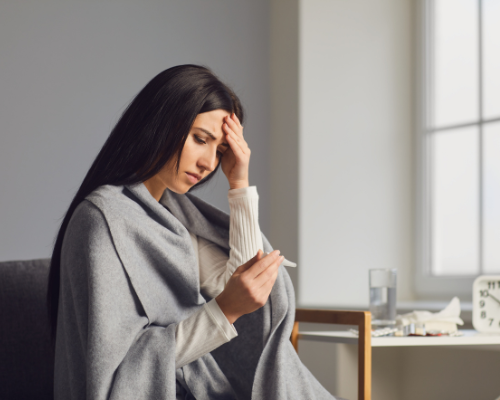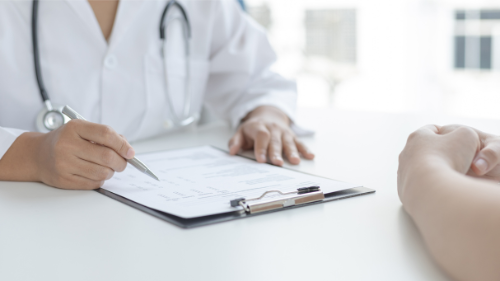Cranial Therapy for Parosmia
Have you lost your sense of smell due to having COVID? Most of the health professionals will say this will only last for a few days or weeks but some people have been experiencing this for longer and it has been referred to as Long COVID. This condition is called Parosmia and once again the medical approach has been put in place and for majority of patients the blanket approach is enough. But, what about that small percentage of people suffering with Parosmia and for whom this standard protocol is just not working. They are following guidance but just don’t seem to be getting better and have now been told by medical professionals they just must live with this condition.
Living with it, is precisely what one of my clients in their mid 30’s was told. Surely with all the information out there we must be able to find a solution for those individuals who just can’t get better.
Well I am not happy to advise you just to live with it so please read on and refer to my service page. We will have a look at Cranial Therapy.
Where we can have a direct approach to the sections of the skull where the olfactory nerve has a relationship with the Ethmoid Bone, Crista Galia and Frontal Bone.

What is Parosmia?
Parosmia is a term used to describe health conditions that distort your sense of smell. If you have Parosmia, you may experience a loss of scent intensity, meaning you can’t detect the full range of the scents around you.
Sometimes Parosmia causes things you encounter every day to seem like they have a strong, disagreeable odour.
Parosmia has been in the news quite a lot due to the COVID epidemic over the last two years. This has led to people losing their sense of smell for short periods as they recover from COVID. But for others this has not been the case and Parosmia has lasted for a longer duration post recovery for some unfortunate people who have developed Long COVID it has only ever slightly improved. If this sounds familiar, please read on and refer to my service page.
Symptoms of Parosmia
Most cases of Parosmia has become apparent after you recover from an infection such as COVID 19. Whilst most of the population has experienced some mild symptoms for a small percentage the severity has been quite significant to their health and their smell has not fully recovered. Symptoms vary from case to case. If you have Parosmia, your main symptom would be sensing a persistent foul odour, especially when food is around. You may also have difficulty in noticing some scents when around food in your daily life this can be a daunting experience.
As a result of this is there is damage to your olfactory neurons. Scents that you used to find pleasant may now become overpowering and unbearable. If you try to eat food that smells bad to you, you may feel nauseous or sick whilst you’re eating.

Causes of Parosmia
Head injury or brain trauma.
Traumatic head injury has been linked to olfactory damage. While the duration and severity of the damage depends on the injury, a review of medical literature indicated that symptoms of Parosmia after a traumatic head injury is not uncommon.
Traumatic head injury can also lead to a loss of sense of smell from shearing of the olfactory nerve fibres at the cribriform plate. Brain trauma can also be caused by damage from seizures leading to Parosmia. All structurers in the body have a function and a role to play as we move around and nothing can be disregarded.
In my experience not all symptoms are present day your past injury will play some part in current symptoms.
Bacterial or viral infection
COVID-19 infection
While COVID-19 has been associated with a loss of smell (anosmia) in some people, it’s also possible to experience Parosmia after having the viral infection. It’s thought that the virus makes changes to the olfactory system, where sustained damage may change the way, you smell after recovery.
One 2021 study Trusted Source of two adults recovering from COVID-19 report such changes. First, a 28-year-old male reported smelling burnt rubber after recovering from anosmia, which occurred 87 days after getting sick. Another adult, a 32-year-old female, reported smelling onions after 72 days.
Such cases point to Parosmia as a possible long-term complication of COVID-19.
Researchers of this study note that COVID-19–related Parosmia Research what other health professionals are saying and how to manage living with Parosmia.
Parosmia after COVID-19 is a sign that your olfactory system may be recovering.
Since the effects of this Coronavirus on your olfactory system are still being researched, it’s important to know that information about short-term and long-term effects on your sense of smell are still coming to light.
At the same time, Parosmia as part of your COVID-19 recovery can be difficult, as it may change your enjoyment of and desire for certain foods. You may also consider discussing olfactory retraining with your doctor.
Smoking and chemical exposure
Your olfactory system can sustain damage from smoking cigarettes. The toxins and chemicals in cigarettes can cause Parosmia over time.
For this same reason, exposure to toxic chemicals and high volumes of air pollution can cause Parosmia to develop.
Neurological conditions
One of the first symptoms of Alzheimer’s disease and Parkinson’s disease is a loss of sense of smell and also cause difficulty in sensing smells properly.
Tumours
Tumours on the olfactory bulbs, in the frontal cortex, and in your sinus, cavities can cause changes to your sense of smell. It’s rare for a tumour to cause Parosmia.
More often, people who have tumours experience Parosmia — the detection of a scent that is not present because of a tumour triggering the olfactory senses.
Diagnosis of Parosmia
Parosmia can be diagnosed by an otolaryngologist, also known as an ear-nose-throat doctor, or ENT. The doctor may present different substances to you and ask you to describe their scent and rank their quality.
A common test for Parosmia involves a small booklet of “scratch and sniff” beads that you respond to under a doctor’s observation.
During the appointment, your doctor may ask questions about:
- Your family history of cancer and neurological conditions.
- Any recent infections you’ve had
- Lifestyle factors such as smoking
- Medications you currently take

Treating Parosmia
Parosmia can be treated in some, but not all, cases. If Parosmia is caused by environmental factors, medication, cancer treatment, or smoking, your sense of smell may return to normal once those triggers are removed.
Sometimes surgery is required to resolve Parosmia. Nasal obstructions, such as tumours, may need to be removed.
Treatments for Parosmia include:
- Zinc
- Vitamin A
- Antibiotics
More research and case studies are needed to prove these are more effective than placebo.
Recovery from Parosmia
Parosmia is not typically a permanent condition. Your neurons may be able to repair themselves over time. In as many as 60 percent Trusted Source of cases of Parosmia caused by an infection, olfactory function was restored in the years afterward.
Recovery times vary according to the underlying cause of your Parosmia symptoms and the treatment that you use. If your Parosmia is caused by a virus or infection, your sense of smell may return to normal without treatment. Olfactory training may potentially help with recovery, but it may take weeks to months to see improvement or for it to resolve.
Treatment Options
If you continue to experience Parosmia and it’s impacting your appetite and weight, you may consider olfactory training therapy. Also known as “smell training Parosmia Research.
There are techniques that can have direct impact on the Ethmoid bone the Crista Galia or indirectly working on other parts of the skull bone such as the Occipital Bone and the Ethmoid Bone can influence other parts of the skull.
This may have some impact on the nerves which are involved in detecting smells and odours. Refer Cranial Therapy with any therapist you work with they should be able to give you a hypothesis of where you are and why your symptoms are still present and not improving its not one hat fit all approach you are after.

My Message to You
Looking at your present and past medical history can have an impact on your current issue.
Don’t just look at your symptoms and please don’t just accept this that this is the new you and it can’t be resolve or improved.
One thing I have learnt working as a therapist is that with commitment, discipline and purpose all is possible with the right help.
I am only a phone call or email away to get a different approach
Ready To Book?
If you’re ready to book your appointment, simply click the button below, if you have any questions you’d like to ask before booking please contact me by phone on +44 7539 107940 or email me at kevin@kevinpowellphysio.co.uk.
Physiotherapy Services
PRE & POST PREGNANCY
See how I can make your pregnancy journey easier and why it’s so important to consider individual medical history and past musculoskeletal injuries.
ANATOMY IN MOTION
Improve your posture and balance by tracking your movement using Anatomy in Motion activities. It shows you how your feet influence your whole posture and movement.
CRANIOSACRAL THERAPY
Crainiosacral therapy is a gentle, hands-on method that helps realign the body tissues, the bones, fascia, and muscles, therefore helping your body to heal.
Physiotherapy Services
View More >>
Read Here To Know How Physiotherapy Can Help You
Enquire today!
Please fill out the form below, and I will get back to you as soon as possible.


